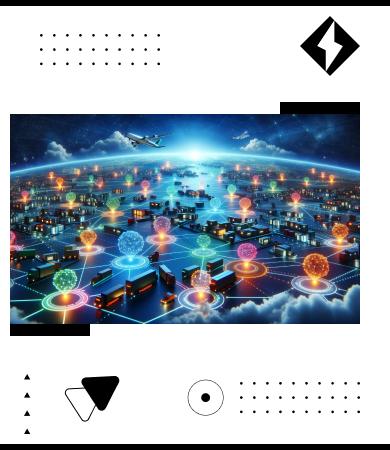Support center +91 97257 89197
Event Marketplace DevelopmentMarch 26, 2024
Utilizing Data Analytics for Personalized Event Recommendations

Introduction
In an era where personalization is not just valued but expected, the event industry is witnessing a significant shift. Gone are the days of one-size-fits-all event recommendations. Today, leveraging data analytics to curate personalized event experiences has become a game-changer, enhancing user satisfaction and engagement manifold. This blog delves into how data analytics is revolutionizing event recommendations, making them more tailored and relevant than ever before.
Understanding the Basics of Data Analytics in Event Recommendations
Data analytics, at its core, is the process of analyzing raw data to find trends and answer questions. The application of data analytics in event recommendations is about understanding individual preferences, behaviors, and contexts to suggest events that resonate on a personal level. Crucial data types include:
- Demographic Data: Information like age, gender, and location offers basic insights into user preferences.
- Behavioral Data: User interactions, such as past event attendances, reviews, and engagement levels, provide deeper insights into preferences.
- Contextual Data: Time of the year, current trends, and social contexts can influence event recommendations.
Key Technologies Powering Personalized Recommendations
The backbone of personalized recommendations lies in technologies like Machine Learning (ML) and Artificial Intelligence (AI), which analyze and process vast amounts of user data. The algorithms at play include:
- Collaborative Filtering: This method recommends events based on the preferences of similar users.
- Content-Based Filtering: It suggests events similar to those a user has liked before.
- Hybrid Approaches: Combining multiple algorithms to leverage the strengths of each for more accurate recommendations.
Leveraging User Feedback for Continuous Improvement
The cycle of personalization doesn't end with the initial recommendation. User feedback, both explicit and implicit, is a goldmine for refining the recommendation engine. Explicit feedback could come in the form of ratings or reviews, while implicit feedback is gathered from user actions like attending an event, spending time on an event page, or exiting quickly. Integrating this feedback helps in continuously updating the user profile and preferences, leading to more accurate recommendations over time.
Integrating Contextual Recommendations
Beyond individual preferences, the context plays a crucial role in personalized recommendations. For instance, recommending outdoor events might be more relevant during summer months or in regions with warmer climates. Similarly, local cultural events could be highlighted during significant local festivals or holidays. By integrating contextual data, the recommendation engine can suggest events that are not just tailored to the user's preferences but also to their current circumstances and environment.
Ethical Use of Data and Maintaining User Trust
In the data-driven world of personalized recommendations, maintaining user trust is paramount. This involves transparent data collection practices, securing user data, and ensuring that the recommendations serve the user's interests without being intrusive or manipulative. The ethical use of data not only complies with legal standards like GDPR but also fosters a positive relationship with users, encouraging their continued engagement with the platform.
The Role of AI in Enhancing Event Discovery
Artificial Intelligence (AI) extends the capabilities of data analytics by not just analyzing past behaviors but also predicting future interests. AI can uncover patterns and correlations that may not be immediately apparent, providing insights into user behavior that can significantly enhance the recommendation process. For instance, AI can predict a user's interest in a new type of event based on their engagement with related content, even if they've never attended such an event before.
Future Trends in Personalized Event Recommendations
The future of personalized event recommendations is likely to see more advanced technologies like Natural Language Processing (NLP) for better understanding user reviews and feedback, Augmented Reality (AR) for virtual event previews, and Blockchain for secure and transparent user data management. These technologies will further personalize user experiences, making recommendations even more accurate and engaging.
Collecting and Preparing Data
Effective recommendations start with high-quality data. Respecting user privacy while collecting data and ensuring its accuracy and relevance is paramount. Techniques for data cleaning and preprocessing prepare the dataset for analysis, removing inconsistencies and irrelevant information.
Building the Recommendation Engine
Developing a recommendation engine involves several steps, from data ingestion and analysis to model training and feedback incorporation. The engine should evolve by learning from user feedback, continually refining the recommendations to better suit individual preferences.
Challenges
While the potential of personalized event recommendations is immense, challenges like data privacy concerns, the complexity of user preferences, and the cold start problem for new users must be navigated carefully. Ethical considerations, particularly regarding user data, play a crucial role in maintaining trust and transparency.
Conclusion
The intersection of data analytics and event recommendations represents a frontier of opportunity in the event industry. By harnessing the power of data to offer personalized experiences, event organizers can significantly enhance user engagement and satisfaction. As technology advances, the potential for even more refined and intuitive recommendations is vast, promising an exciting future for personalized event planning.
TLDR
This blog explores the pivotal role of data analytics in crafting personalized event recommendations, delving into the types of data used, analytical techniques, implementation strategies, and the future outlook of personalized events.
FAQs
Data analytics processes user data, including preferences and behaviors, to identify patterns and predict future interests. This enables platforms to offer tailored event suggestions, enhancing user engagement and satisfaction.
Challenges include handling sparse data, addressing the cold start problem for new users, ensuring privacy and ethical data use, and maintaining recommendation diversity to prevent echo chambers.
Platforms should adhere to data protection regulations, employ transparent data collection practices, offer users control over their data, and implement robust security measures to safeguard user information.
Work with us







